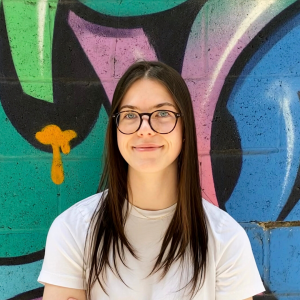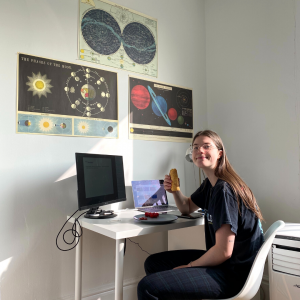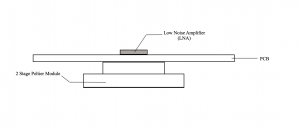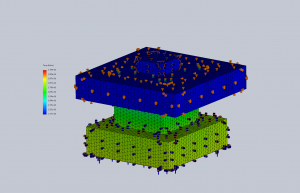
Credit: Maddy Nardin.
Maddy is a fourth year undergraduate student at the University of Toronto, specializing in Astronomy & Physics, with minors in both Mathematics and Environment & Energy. She was born and raised in Vancouver, BC and now lives full time in downtown Toronto.
When Maddy isn’t neck deep in work or homework you can find her reading, at her very frequent varsity soccer practices, or compassionately taking care of her (many) houseplants. Maddy is thrilled about her opportunity to be partaking in SURP this summer in the Long Wavelength Lab with Dr. Keith Vanderlinde.
What made you decide to participate in SURP?
I decided to participate in SURP because it is a great hands on opportunity to work on exciting research projects. I am interested in astronomical instrumentation, which is not a heavily focused subject at the undergraduate level, however SURP has provided me with an opportunity to pursue this interest and contribute to the phenomenal research that takes place at U of T.
What is your favourite thing about SURP?
My favourite aspects of SURP by far are the mentorship experience and weekly seminars. The opportunity to interact and learn from world class researchers is truly unique. It is a great experience to work with my awesome supervisor, Dr. Keith Vanderlinde, who is extremely knowledgeable and shares a passion for advancement in the field.
Can you tell us about your research project?
My research looks into the application of localized Low Noise Amplifier (LNA) cooling in radio astronomy instrumentation. Reducing the operating temperature of a LNA drastically decreases the noise figure, increasing the signal to noise ratio of within the front end receiving system of a radio telescope. Through thermal analysis simulations of front end hardware design and circuit design tests I seek to determine if localized LNA cooling is a viable option for upcoming radio telescopes.
Can you explain how SURP has perhaps been different from your undergrad work?
SURP has been different from my undergraduate work in many ways. The majority of my undergraduate courses have focused on developing a foundation of astronomical and mathematical topics, but SURP has allowed me to apply my knowledge in a practical setting. SURP removes the constant deadlines and repetition of traditional experiments and has allowed me to experience the research process and become an expert in a topic, something I have really begun to enjoy.
What are your plans for the future?
After completing my undergrad, I hope to continue my studies through grad school in pursuit of a masters in astronomical or aerospace instrumentation. After that, who knows? I hope to continue working in the field, pushing for innovation in instrumentation and its applications.
For more SURP Student Spotlight profiles visit:
dunlap.utoronto.ca/training/surp/studentspotlight2021.



